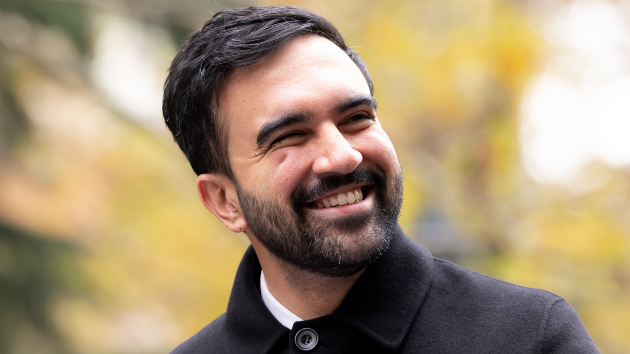Former Missouri lawmaker Jason Kander featured in new documentary about PTSD treatment for veterans
Written by ABC Audio ALL RIGHTS RESERVED on June 28, 2023

(NEW YORK) — Afghanistan War veteran Jason Kander says he was a few months into therapy for post-traumatic stress disorder when he realized, for the first time, that recovery is not only possible, but common.
“My therapist had to explain to me that it is normal to get better,” Kander said in an interview with ABC News’ Linsey Davis. “That most people who commit to the program actually achieve post-traumatic growth, meaning they get to a point where PTSD no longer is disruptive to their life.”
It was this hopeful perspective filmmakers sought to put at the forefront of “Here. Is. Better.,” a new documentary that follows four veterans, including Kander, as they go through some of “the most clinically effective, evidence-based trauma psychotherapies for PTSD,” according to the film’s synopsis.
The three treatments featured in the documentary are cognitive processing therapy, eye movement desensitization and reprocessing, and prolonged exposure therapy, according to the filmmakers.
“I said yes to [being featured], because I could tell that what they wanted to do was to tell a story that was so different than the way PTSD is usually depicted,” Kander said, adding that he believes “a sense of voyeurism” of people in the throes of the illness is often what gets portrayed onscreen and in the news.
Kander enlisted in the Army National Guard after 9/11 and was deployed to Afghanistan in 2006, serving as a military intelligence officer, investigating those suspected of corruption, espionage, drug trafficking and facilitating Al Qaeda and the Taliban, according to his biography on the documentary’s website. When he returned home, he was elected to the Missouri House of Representatives, serving from 2009 to 2013, and later as the Missouri secretary of state. He was the Democratic nominee for the U.S. Senate in Missouri in 2016 and narrowly lost.
But a “deep internal turmoil” was brewing underneath the surface, according to the biography. For years, Kander suffered nightmares related to his time in Afghanistan, was “frequently angry” and had a “heightened sense of alertness” that began to negatively affect his family.
People diagnosed with PTSD have intense, disturbing thoughts and feelings that last long after a traumatic event ended, according to the American Psychiatric Association. They may relive the traumatic event through flashbacks or nightmares and may avoid situations that remind them of the event. They may also feel sadness, fear or anger and detached from other people around them.
While running for mayor of Kansas City in Oct. 2018, Kander announced publicly he was walking away from politics and seeking help for his mental health at the Kansas City VA.
When the documentary began filming, it was Kander’s first time speaking about his experience since completing a course of treatment based on prolonged exposure therapy, according to the filmmakers. At the time, his emotions were still raw.
Prolonged exposure therapy is a type of cognitive behavioral therapy that teaches patients to “gradually approach trauma-related memories, feelings, and situations” they have been avoiding since the trauma, according to the Department of Veterans Affairs website.
Kander recorded these therapy sessions on his iPhone and shared them with the filmmaking team to give an inside look at the process.
Others featured in the documentary are John, a Vietnam War veteran still haunted by events that happened over 50 years ago, Teresa, a veteran who witnessed an IED explosion in Iraq that nearly killed her future husband, and Tabitha, a veteran deployed to Iraq who was sexually assaulted early in her training. Only the first names of John, Tabitha and Teresa are used in the documentary.
Tabitha and Teresa received their treatment at the Cincinnati VA Trauma Recovery Program, which is featured in the film. An average of 210 people go through its residential program per year; 70% of participants who complete the program no longer meet the criteria for PTSD, a spokesperson for the documentary said.
PTSD is slightly more common among veterans than civilians, according to the Department of Veterans Affairs. An estimated 7% of veterans will have PTSD in their lifetime, while 6% of every adult will have PTSD in their lifetime.
Research shows that deployment increases the risk of PTSD — with some studies showing that PTSD is three times more likely among veterans who deployed compared to those of the same service era who did not, according to the VA.
“I think it was important to deliver a hopeful, but not sugarcoated message, about what recovery looks like and various paths to treatment, at least to open to the door to the possibility that people would seek treatment. That was the most important part for all of us,” director Jack Youngelson told ABC News.
ABC News’ Penelope Lopez, Andrea Amiel and Sarah Baniak contributed to this report.
Copyright © 2023, ABC Audio. All rights reserved.
 KVSP
KVSP 




